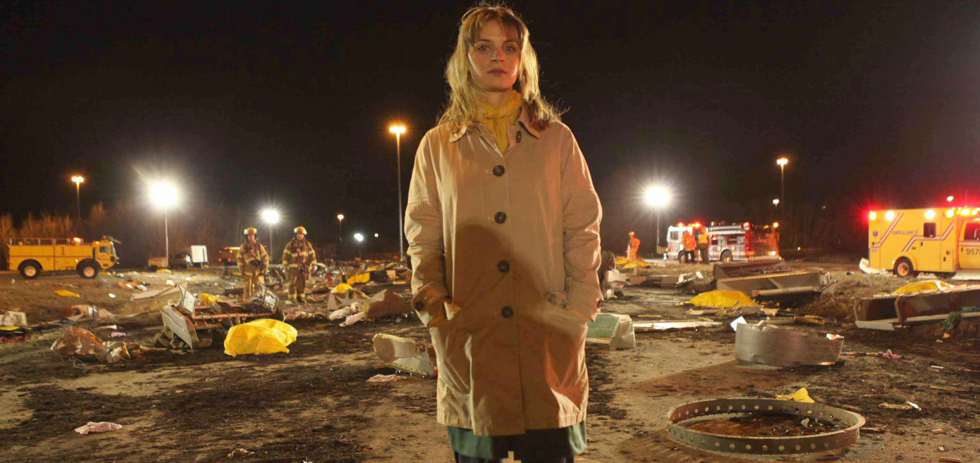
Like the plane crash at its epicenter, Daniel Grou’s Miraculum is an inexplicable tragedy, the kind of film you watch mouth agape, wondering how it was allowed to happen. A film about chance encounter, Miraculum borrows from hyperlink cinema standouts like Magnolia and Short Cuts, though ends up playing like a neutered Crash. While it might seem conceited to evaluate the film only by reference to its antecedents, it’s important to know that Grou’s influences are evident at the most basic level of Miraculum’s third-rate DNA.
Miraculum shares Crash’s morally patronising tone, while also managing to err doubly wrong on both sides of the melo-/regular-drama divide, leaving the film tonally ambiguous and incapable of immersing us. It follows a Jehovah’s Witness experiencing a crisis of faith, a pair of elderly casino employees, and a drug mule, among others—a superficially distinct ensemble differentiated only by the vapid tags I identified them with. While your ears might have perked up at ‘Jehovah’s Witness’ and ‘drug mule’, their arcs are undermined by the narrative’s utter lack of gravity. At no point does anything even resembling stakes shuffle into the frame. From the outset, Grou is dismissive of the nurse’s faith, coloring her—a lifetime member of the Jehovah’s Witnesses—as a doubter herself. Without actually engaging with the significance of her crisis of faith and her obligations as a nurse, Grou trivialises her decision to break church rules. The result is twofold: we both don’t take her seriously, nor do we feel particularly affected by any decisions she makes. She leaves the church, and we, watching, feel it’s a decision with all the significance of switching breakfast cereals.
In this way, Miraculum is both too on the nose, while also omitting the depth and insight that humanises characters. A scene related to the plane crash plays with Frankie Rose’s “Pair of Wings” on top (“All that I want is/A pair of wings to fly” and “Show me your scars/I’ll show you mine”), while the nurse’s agonies over whether to give blood are represented on screen only through close-ups of blank looks. The ensemble might then be united by their lack of strong beliefs—characters make decisions, are quickly talked out of them, and continue on a new path utterly un-beset by anything resembling conflict. Grou seems aware of this, and thus cuts quickly between scenes with a single song playing over the top, as if attempting to fool the viewer into thinking this counts as interaction. If drama is the product of two characters wanting the same thing, then Miraculum is an experiment in keeping an entire cast so divorced from one another that they can all pursue their goals independently. At only 100 minutes, you could splice in another 90 minute feature and, as long as it’s in French, nobody would notice.
Just as the film’s tone and narrative bear all the hallmarks of student filmmaking, Grou’s shots are a series of contrivances. He’s a graduate of the Paul Thomas Anderson school of setting up shots meters from the subject and tracking in, except Grou’s knockoffs have none of the kinetic emphasis. His meandering camera movements instead suggest an idea of the camera as a reluctant observer, hoping to sneak off and find something interesting to look at before the cast notices. The editing seems to agree with the camera, cutting to a new scene while letting the previous one’s dialogue play out. These movements imply a film trying to escape itself. It doesn’t help either that the film’s palette is a lifeless series of whites and greys—even the casino looks like it’s on sleeping pills—and without such distinctions, we’re given no visual reference point to distinguish each character.
At one point in Miraculum, a jilted husband rejects the Witnesses at his door by saying “if planes crash, it’s because your omnipotent God doesn’t exist”. The existence of Miraculum might prove the same thing. It’s the kind of film that aches to watch and hurts more to write about. Intellectually wafer thin and lacking the audacity of its influences, Miraculum is the sort of thing they’d inflict on you in solitary confinement, to make the time pass slower.
Around the Staff:
| Conor Bateman |
